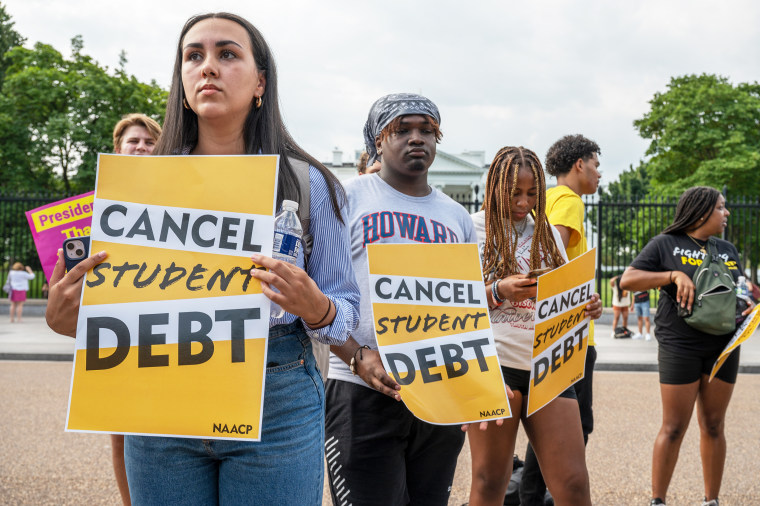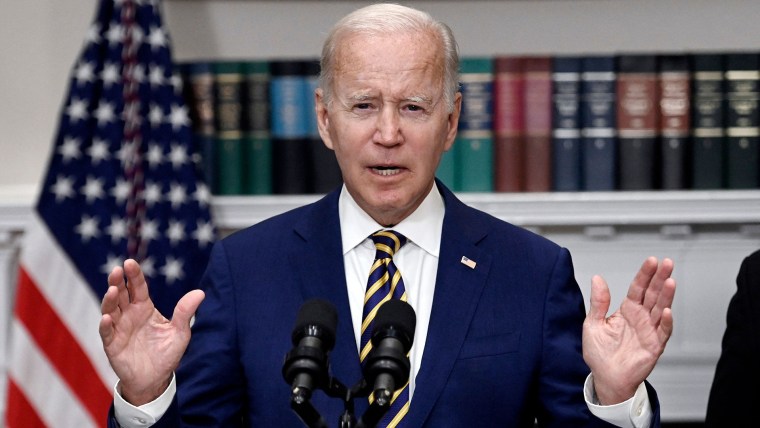Judge blocking Biden’s student loans relief made a glaring error
“if Biden had been able to get the votes he needed in the Senate, student loan relief would have been on firm legal ground.

At the end of this summer, President Joe Biden made good on a campaign pledge by announcing a plan that would erase approximately $430 billion of the $1.6 trillion in student debt held in this country. But last week, a Trump-appointed federal judge concluded that Biden’s student loan relief program is an illegitimate use of presidential authority, a ruling that brings into clearer focus a battle between a frustrated president, a recalcitrant Congress and the federal judiciary.
As many as 26 million people have already applied for student loan forgiveness under the program that now stands in legal limbo, because a judge incorrectly allowed this suit to go forward
Under Biden’s plan, single people making less than $125,000 per year, or married couples making less than $250,000, would be eligible for up to $10,000 of student loan forgiveness. Borrowers who received Pell grants are eligible for $20,000 in loan forgiveness. As many as 26 million people have already applied for student loan forgiveness under the program that now stands in legal limbo, because a judge incorrectly allowed this suit to go forward.
Some will argue that we never would have been in this position if Biden could have enacted his program through the legislative process. Let’s be clear, if he had been able to get the votes he needed in the Senate, student loan relief would have been a piece of legislation, and it almost certainly would have been on firm legal ground. The reason that the grounds here are arguably shaky is, at least in part, because even some Biden allies have questioned whether he has the authority to enact this program. House Speaker Nancy Pelosi had previously argued that presidents lack the power to forgive loans and that such a program must go through the legislative process. But Biden, even with a majority in the House and the Senate, could not push this proposal through. (Biden's legislative remedy failed, in part, because Sen. Joe Manchin, D-W.Va., objected to it.) So he acted alone.
And acting alone made his program ripe for legal challenge. The actual legal arguments here are narrow. As Judge Mark T. Pittman points out, the issue isn’t whether student loan forgiveness is a sage policy. There are two legal questions. First, whether the people who sued, those who are entirely or partially ineligible for the student loan forgiveness program, have standing. Second, whether a federal statute that gives the education secretary the authority to erase student loans during national emergencies, such as the Covid pandemic, gives the president the power to create this debt forgiveness program.
Pittman bungled the legal analysis on the first question, the issue of standing, and as a result, improperly moved on to the second question of presidential authority. If he had correctly concluded that the plaintiffs here lack standing, he would have been legally prevented from moving on and issuing a nationwide injunction to halt the student loan forgiveness program. The government has already appealed his ruling to the conservative 5th Circuit Court of Appeals.
Standing is a legal requirement to sue in federal court, and at its most basic level, it requires that a person who sues has suffered an actual, concrete injury; that the injury was caused by the alleged conduct of the defendant; and that the injury will be at least partially remedied if the person suing wins. The argument at the heart of this standing issue is whether the Biden administration followed the proper procedures for rulemaking, which would have allowed for a period of notice and comment. Here the plaintiffs claim that they were injured because the Biden administration deprived them of the ability to argue against the program during a notice and comment period. The Biden administration, however, correctly points out that the federal law at issue specifically allowspresidential administrations to drop the typical rulemaking process.
On the standing issue, the judge’s analysis is more than a bit garbled.
On the standing issue, the judge’s analysis is more than a bit garbled. The plaintiffs’ argument is that they were harmed because they couldn’t object to a proposal in which the government would give some people, but not others. student loan relief. But as the Biden administration points out, the federal law at issue specifically exempts the government from having to go through the usual rulemaking process. At this point, Pittman’s standing analysis evaporates.
And the plaintiffs will have an issue hooking their standing claim to another type of injury. The problem for the plaintiffs is that a complaint that the government is giving a benefit to one group and not another is generally not considered to be enough of a concrete injury to give rise to standing.
More from MSNBC Daily
Must reads from Today's list
This isn’t the only lawsuit involving Biden’s student loan relief plan that's been dismissed for lack of standing. In one of the other challenges, the 8th Circuit Court of Appeals just issued a nationwide injunction to halt the program while it considers a challenge from the attorneys general of six Republican-controlled states, whose suit was dismissed by a district court for lack of standing.
If no one has the standing to sue challenging Biden’s program, it is possible that the student loan forgiveness program is not reviewable by a federal court. That inability to have a court review it would be a result of a legal doctrine that requires that people walking into federal court have a very specific type of injury that a federal judge can remedy.
The proper venue for this debate is therefore the political arena. The questions are twofold. Do we support Biden’s stance on student loans? And do we want any president to use this federal statute to impose a policy that he could not convince Congress to support? This last question is likely to repeat frequently in the next two years.
If Biden was unable to get this policy passed through the House and the Senate before the midterms, just imagine what is going to happen now that it appears Republicans are likely to control the House. We are likely to see more attempts by the Biden administration to enact its policies through executive orders instead of through legislation. And this will only lead to more battles in the courts. “


No comments:
Post a Comment